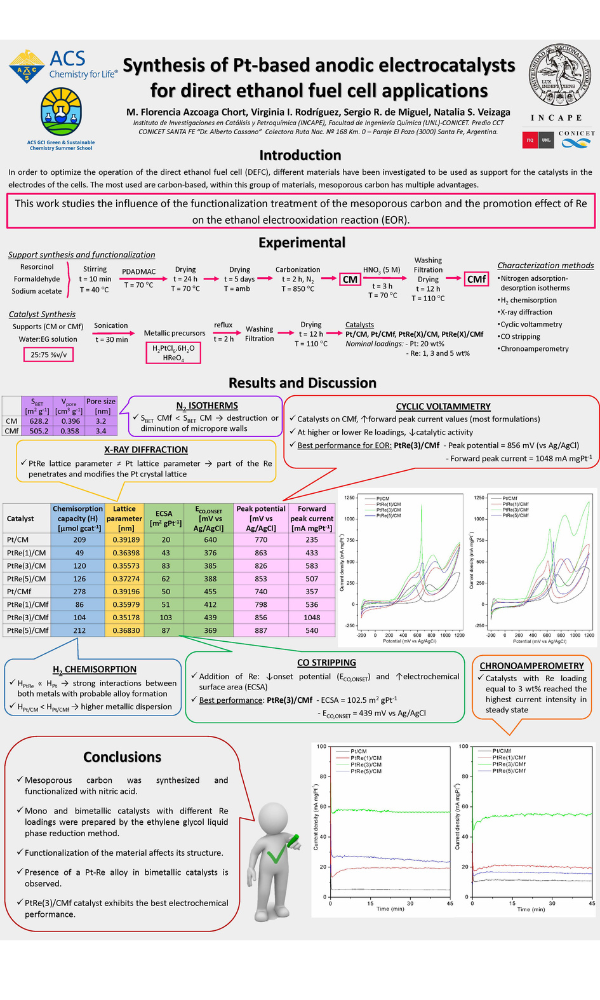
The presented work on the synthesis and functionalization of mesoporous carbon, as well as the preparation of anodic catalysts for direct ethanol fuel cells, has an essential connection with the principles of green chemistry. The synthesis of mesoporous carbon from a resorcinol-formaldehyde resin represents a sustainable approach, as it enables the design of materials with specific properties through controlled processes that maximize the use of available resources. This methodology promotes the utilization of renewable materials and more efficient processes, such as nitric acid functionalization to enhance the properties of the support. Furthermore, the development of bimetallic catalysts with optimal combinations of platinum and rhenium increases electrochemical activity while reducing the required amount of noble metals. These strategies contribute not only to the optimization of fuel cell technologies, a clean energy source but also to the transition toward more sustainable energy systems with a lower environmental impact.